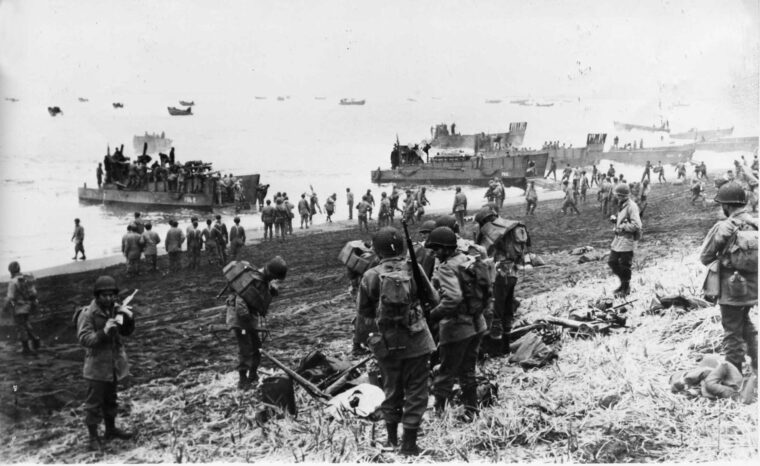
Frank Knox
Fog of War in the Aleutians
By Colonel James W. Hammond, Jr.For decades Americans have been spoiled by the instant coverage of war in the media. Read more

Frank Knox
For decades Americans have been spoiled by the instant coverage of war in the media. Read more
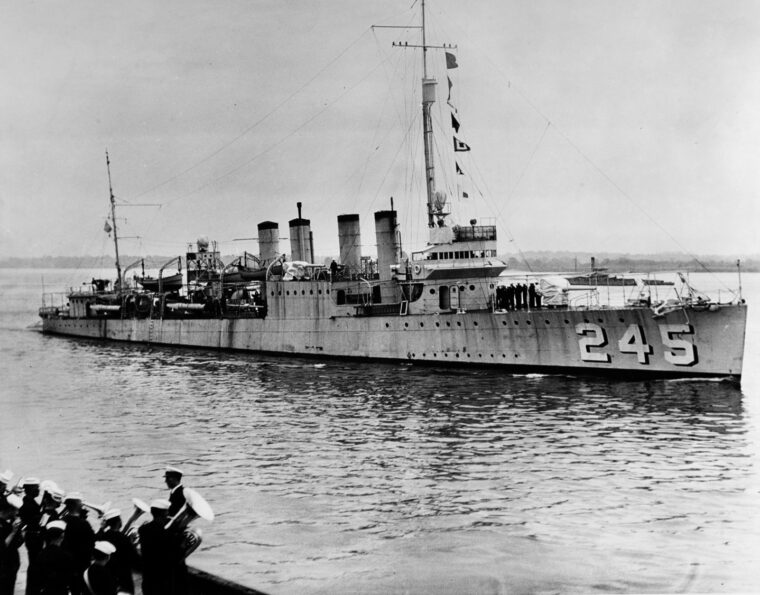
Frank Knox
When the destroyer USS Reuben James (DD-245) was assigned to convoy duty in the North Atlantic in the autumn of 1941, its crew had a sense of foreboding and feared the worst. Read more
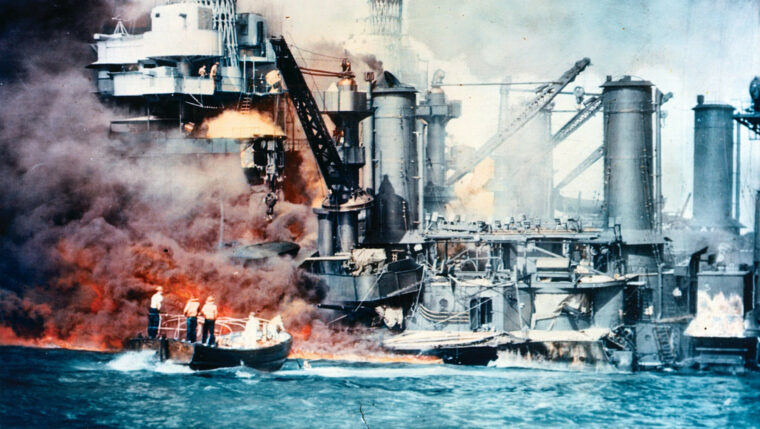
Frank Knox
It was, as the phrase goes, another perfect day in paradise. As the sun rose above the Pacific in the clear, cloudless sky east of the Hawaiian Islands, on December 7, 1941, the giant U.S. Read more
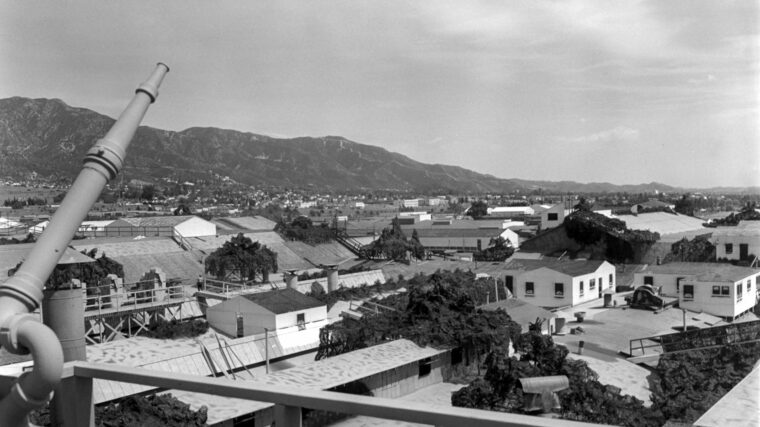
Frank Knox
When I was a young boy in Seattle, my father told me about a fake town that had been built on top of Boeing’s Plant 2 during the war. Read more
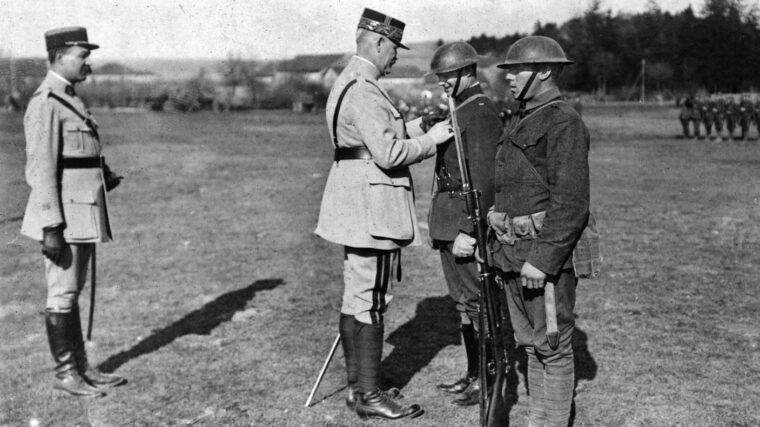
Frank Knox
On July 14, 1940, William Donovan stood on the pier fronting New York harbor and waited to board the Pan Am flying boat named the Lisbon Clipper for a flight that would take him to Portugal and then to London, his ultimate destination. Read more
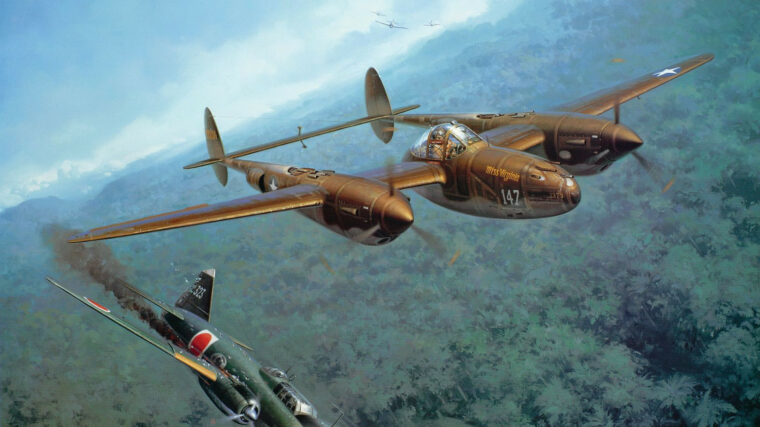
Frank Knox
When American air ace Major John Mitchell led 16 Lockheed P-38 Lightning fighters on the longest combat mission yet flown (420 miles) on April 18, 1943, Mitchell’s target was Isoroku Yamamoto, the Japanese admiral considered the architect of the Pearl Harbor attack. Read more
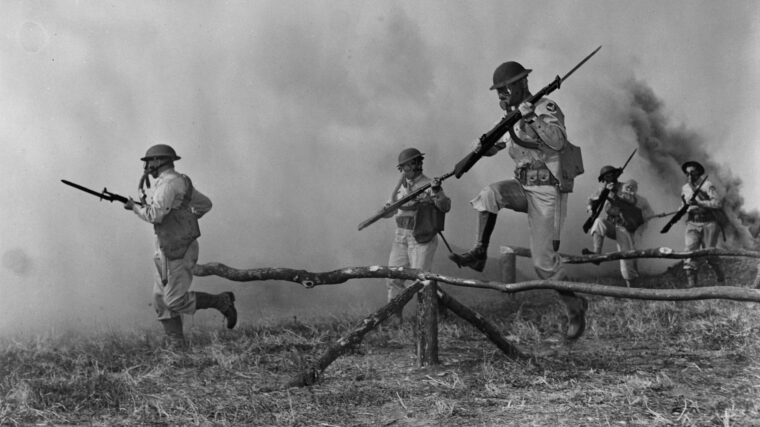
Frank Knox
On July 17, 1941, United States Army Chief of Staff General George C. Marshall sat before the Senate Military Affairs Committee. Read more
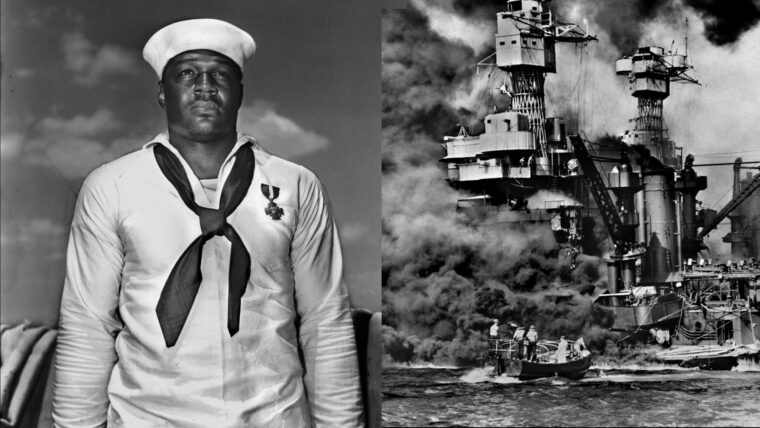
Frank Knox
His name was Doris, but he was a powerfully built football fullback, a heavyweight boxer, and the first black American hero of World War II. Read more
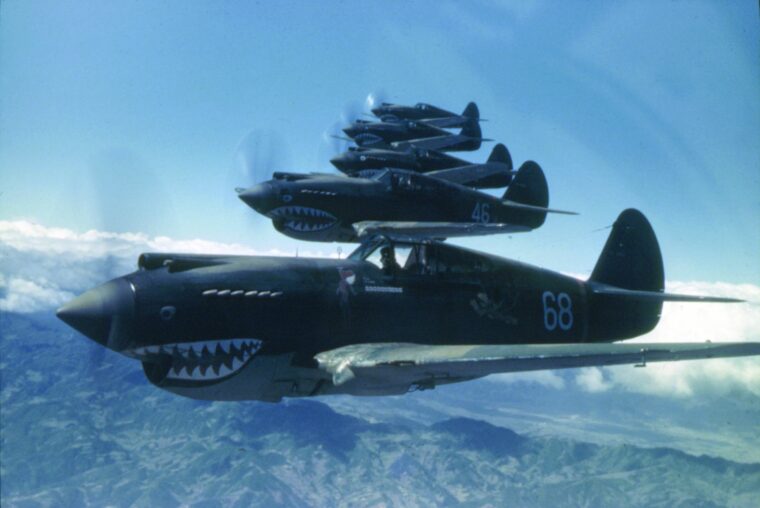
Frank Knox
Laden with 500-pound bombs and incendiaries, 10 Japanese twin-engine Mitsubishi Ki21 Sally bombers took off from the Hanoi airfield in Indochina on the morning of Saturday, December 20, 1941. Read more
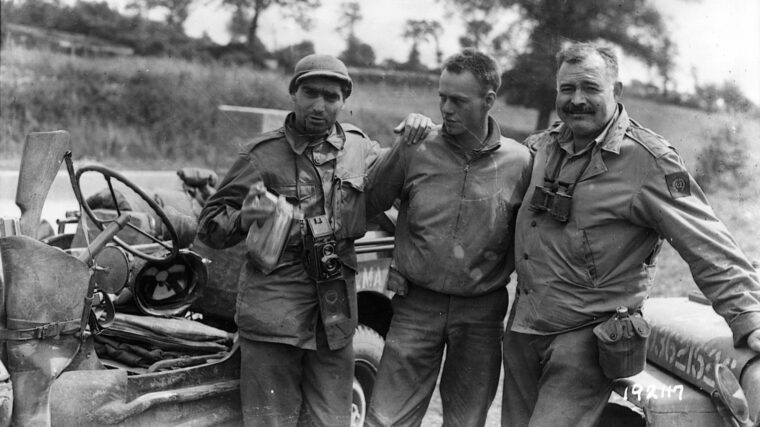
Frank Knox
“We are going to have Christ’s own bitter time to win it, if, when, and ever,” commented Ernest Hemingway to his friend and editor, Charles Scribner, at the start of World War II. Read more